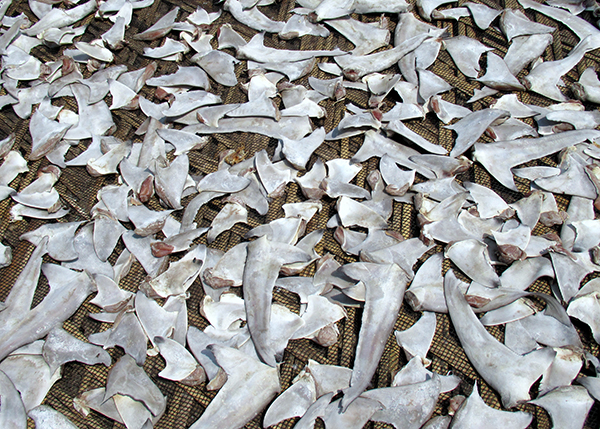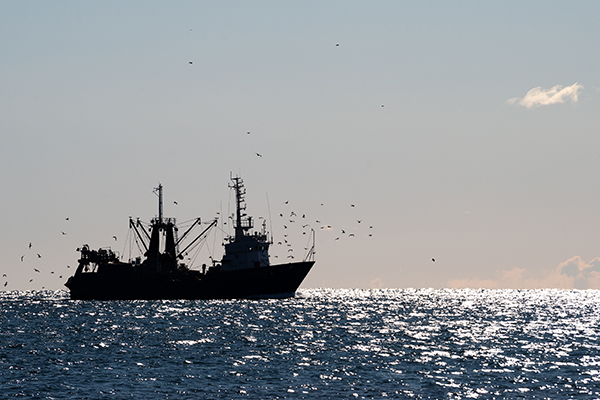‘Undermanaged’ sharks continue to decline because of ‘insufficient management actions’

Although some tunas and billfishes are recovering after decades of decline from overfishing, due in large part to successful fisheries management and conservation actions, shark biodiversity continues to decline, according to a new study. Its findings illustrate the value of conservation and fisheries management in protecting large ocean species and underscore the immediate need for these protections to be extended to sharks.
It’s estimated that intense fishing across the planet’s oceans has led to roughly half of all commercially harvested fish and invertebrate stocks becoming overfished during the 20th century, including iconic large predatory fishes like tuna, billfishes and sharks. However, while intense fishing activity has been increasingly monitored and managed, its overarching effects on ocean biodiversity are generally poorly understood.
The study, which was published in Science, analyzed yearly changes in these species’ extinction risk for the last 70 years. Based on International Union for Conservation of Nature (IUCN) Red List categories and criteria, the researchers created a continuous Red List Index (RLI) of yearly changes in the extinction risk of oceanic tunas, billfishes and sharks spanning the last 70 years to better understand the health of oceanic biodiversity as well as the overall impacts of fishing mortality and conservation efforts on these populations.
The research team found that after more than half a century of increasing risk of extinction due to increasing fishing pressure, effective fisheries management and conservation strategies have allowed populations of tuna and billfish to recover over the past decade. However, the extinction risk for sharks, which remain largely undermanaged, continues to rise.
The findings suggest that while target species are increasingly and successfully sustainably managed to ensure maximum catch, other functionally important species like sharks, which are often captured as bycatch in these fisheries, continue to decline because of insufficient management actions.
“The conservation statuses of threatened target species can be improved by managing the fishing industry, which can benefit the industry economically in the long run while allowing the threatened species to recover,” wrote Matthew Burgess and Sarah Becker in a related Perspective. “However, the protection of high-vulnerability bycatch and nontarget species is expected to be more difficult because they will require fisheries to invest in better fishing gear and targeting practices, or reduce fishing efforts, without directly benefiting from these changes.”
Now that you've reached the end of the article ...
… please consider supporting GSA’s mission to advance responsible seafood practices through education, advocacy and third-party assurances. The Advocate aims to document the evolution of responsible seafood practices and share the expansive knowledge of our vast network of contributors.
By becoming a Global Seafood Alliance member, you’re ensuring that all of the pre-competitive work we do through member benefits, resources and events can continue. Individual membership costs just $50 a year.
Not a GSA member? Join us.
Author
-
Responsible Seafood Advocate
[103,114,111,46,100,111,111,102,97,101,115,108,97,98,111,108,103,64,114,111,116,105,100,101]
Tagged With
Related Posts

Fisheries
Bangladesh moves to protect threatened sharks and rays
With sharks and rays critically endangered, the government of Bangladesh has amended legislation to reduce the extinction risk of the species.

Fisheries
Researchers develop model to predict success of Marine Protected Areas
Researchers aim to predict the success of Marine Protected Areas based on historical fishing pressure and environmental conditions.

Responsibility
Study pinpoints Pacific Ocean priority areas to consider for marine conservation
New research has pinpointed four high-traffic areas in the Pacific Ocean that should be considered "high priority" for marine conservation.

Fisheries
Bottom trawling linked to high greenhouse gas emissions in MPA-supporting study
A study touts marine protected areas and bottom trawling bans, but its methods and conclusions are questioned by fellow researchers and fishers.



